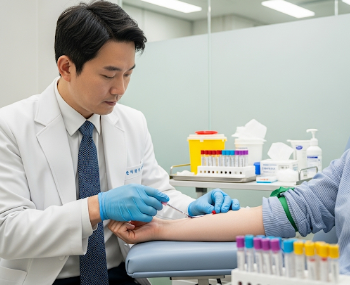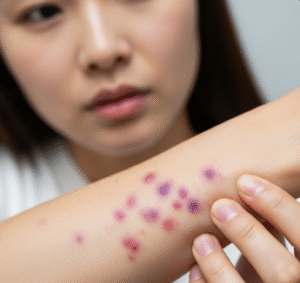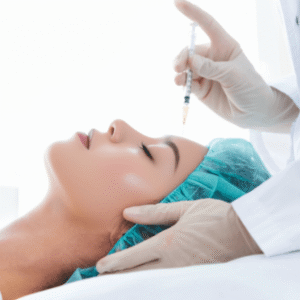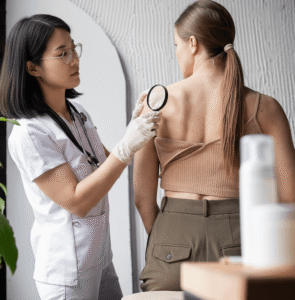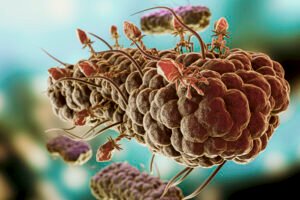Overview
Blood testing is one of the most common and essential diagnostic tools in modern medicine. It involves taking a small sample of blood, usually from a vein in the arm, to evaluate a patient’s overall health and detect conditions ranging from infections and anemia to chronic diseases like diabetes or cancer.
In South Korea, blood tests are performed with state-of-the-art laboratory technology, ensuring high accuracy and rapid results. Many hospitals and clinics provide same-day testing and analysis, making Korea an attractive destination for both routine check-ups and advanced medical evaluations.
What is Blood Testing?
Blood testing, also known as blood work, is a medical procedure that measures different components in the blood to assess a person’s health status.
Common types of blood tests include:
- Complete Blood Count (CBC): Evaluates red and white blood cells, hemoglobin, and platelets.
- Blood Chemistry Tests: Checks kidney, liver, electrolyte, and glucose levels.
- Lipid Panel: Measures cholesterol and triglycerides for heart health.
- Hormone Testing: Assesses thyroid, reproductive, or stress hormone levels.
- Infection Markers: Identifies bacterial or viral infections.
- Tumor Markers: Helps detect early signs of cancer.
What are the Benefits?
Blood testing offers a wide range of health and wellness advantages:
✔ Early detection of diseases such as diabetes, cancer, or infections.
✔ Monitoring of chronic conditions like hypertension, kidney disease, or thyroid disorders.
✔ Guidance for treatment decisions and medication adjustments.
✔ Preventive care by identifying risk factors before symptoms develop.
✔ Safe, quick, and minimally invasive diagnostic tool.
✔ Widely available in Korea with same-day results and affordable packages.
Procedure Details
1) How should I prepare for Blood Testing?
Preparation depends on the type of test:
- Fasting required: Some tests (like glucose or cholesterol) require fasting for 8–12 hours.
- Avoid alcohol and caffeine 24 hours before the test.
- Inform your doctor about medications or supplements, as they can affect results.
- Stay hydrated, since drinking water makes veins easier to access.
In Korea, patients often receive digital reminders and preparation guidelines before their scheduled blood tests.
2) What happens during the procedure Blood Testing?
- A healthcare professional cleans the skin with antiseptic.
- A needle is inserted into a vein (usually in the arm), and a small amount of blood is collected into a vial.
- The process typically takes less than 5 minutes.
- For infants or children, a heel or finger prick may be used instead.
- The blood sample is then sent to the laboratory for analysis.
Korean clinics use automated machines and AI-assisted diagnostic systems for precise and fast testing.
3) What happens after a Blood Testing?
- A small bandage is applied to the puncture site.
- Mild bruising or soreness may occur but usually resolves quickly.
- Results are typically available within hours to a few days.
- Patients in Korea often receive results via mobile apps or secure online portals with detailed explanations in English for international patients.
Risks / Benefits
Possible Risks:
- ➤ Mild pain, bruising, or swelling at puncture site
- ➤ Lightheadedness or dizziness (rare)
- ➤ Infection (extremely rare when done in certified clinics)
Major Benefits:
- ✔ Provides critical health information quickly and safely
- ✔ Detects diseases before symptoms appear
- ✔ Supports ongoing treatment monitoring
- ✔ Widely available and affordable in Korea
Recovery and Outlook
There is no recovery period required after blood testing. Patients can resume normal activities immediately.
The outlook depends on the results:
- Normal results provide reassurance about overall health.
- Abnormal results may require additional testing, lifestyle changes, or medical treatment.
In South Korea, patients benefit from comprehensive health packages, where blood testing is part of regular check-ups, cancer screening, and preventive health programs.
When To Call the Doctor
You should contact a doctor if you experience:
- ➤ Persistent bleeding at the puncture site
- ➤ Severe pain or swelling in the arm
- ➤ Signs of infection such as redness, warmth, or pus
- ➤ Unexplained or concerning blood test results that require medical explanation
Best Korea Option / Process
South Korea is a leader in diagnostic testing and offers:
- Cutting-edge labs with AI-driven analyzers and robotic testing systems.
- International health check-up centers in Seoul, Busan, and Incheon.
- Customized blood test packages for general health, women’s health, cancer screening, and chronic disease monitoring.
- Rapid turnaround with results available in as little as 1–3 hours.
- Affordable pricing, with full health check-up packages often costing less than in the US, Japan, or Europe.
Renowned institutions like Samsung Medical Center, Asan Medical Center, Severance Hospital, and Seoul National University Hospital are among the best places for accurate and reliable blood testing.

